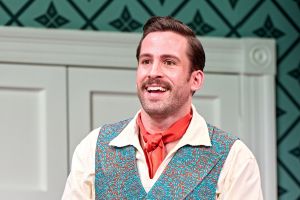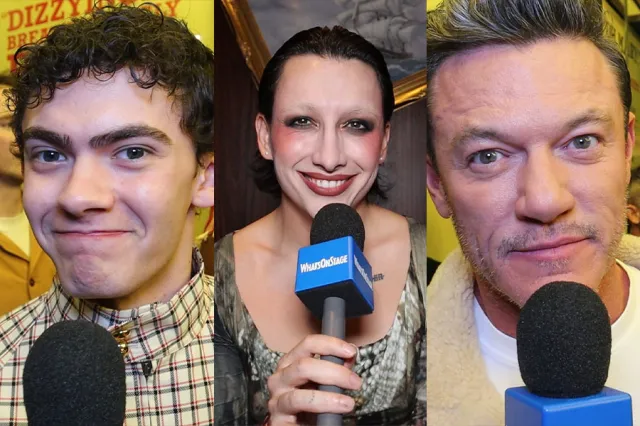An Interview with Sally Burgess
On 17 November 2009 renowned mezzo-soprano Sally Burgess makes her directorial debut in London when the English Chamber Opera’s production of Cosi fan tutte comes to the London Oratory School’s John McIntosh Arts Centre Theatre.
Things have happened quickly, and it is only about nine months since Burgess was first approached to direct the opera for the company. But five minutes into our conversation, as we meet backstage at the Royal Opera House, it is quite clear that directing is in Burgess’s blood, it being not so far removed from her approach to tackling a role on stage.
Burgess has always believed that the drama is just as important as the singing in an opera, and clearly practises what she preaches. When she played Carmen for the ENO, in a new David Pountney production, she relished the chance to have flamenco lessons. Similarly, when performing several Gershwin songs at a Prom (she is also a distinguished jazz singer) she and Paul Daniel suggested that the double bass player don dark glasses for Slap That Bass, so that she could interact with him and make the song far more than just a vocal performance.
Part of her approach may be attributed to her background. She was born in South Africa to a family that was originally from England. Neither parents were professional musicians, but the entire family was very musical, her uncles having been in wartime dance bands, and her grandmother seeming to win every talent contest she ever entered. I wonder if this gave her a far wider exposure to the art of performance than she might have received in a more ‘academically’ musical family. Burgess grew up with lots of performing experience, and came to England at the age of twelve, but says that when she auditioned for the Royal College of Music she had had few formal singing lessons, and was accepted on the basis of her potential.
When Burgess graduated from the Royal College she was offered two successive three-year contracts as a soloist with the ENO, beginning in 1978. She fondly remembers this period as one where her talent was nurtured in a supportive environment, and one where she had considerable freedom to experiment with roles. Since then Burgess has gone on to play a host of principal roles in virtually every major opera house around the world. She has always maintained a proactive approach to exploring her roles which directors have appreciated. She believes that the physicality of the singer is integrally linked to the sound that they produce, and that the whole body forms the instrument. Burgess admits that there are times when she has thought of suggesting to colleagues how they might improve their performance and had to ‘button her lip’, but clearly her mind is constantly generating lots of ideas.
And with Cosi Burgess is relishing the opportunity to put her own ideas into practice. As she speaks, it certainly feels as if she has something important to say with the piece and has a keen sense of how to say it. Burgess tells me that she endeavoured to see as many productions of Cosi as possible, and from doing so formed in her own mind what she didn’t want to do with it.
With an interest in making it both humorous, because that is what the music lends itself to, and something that we can relate to, Burgess has set the story in 1950s Positano. She believes that the 1950s is the most modern period she could plump for, that would still enable the women to have led sufficiently sheltered lives to make the set-up of the original opera ring true. Certainly, as she hands me a flyer sporting a couple riding a Vespa, with luscious hearts bursting from the glossy paper, I feel inspired that the production itself will be just as effective in conveying a sense of period.
Burgess readily admits that the budget has been low, but she is extremely proud of what has been achieved, believing that, when it comes to costumes and staging, limited resources have been the mother of invention. Not that everything has gone smoothly in putting the production together. Whilst, as members of ECO, two of the cast, Rebecca Cooper ( Fiordiligi) and Beverley Worboys (Despina), were already in place (as was the conductor, John K. Andrews), finding the remainder was time consuming, and rehearsal time has only been three and a half weeks. Indeed, things weren’t helped when the tenor booked to play Ferrando landed in London, only to be sent immediately back to Mexico. His replacement, Stuart Haycock, has had to learn the entire part in around five weeks, although, as so often happens, Burgess now finds it hard to picture anyone else in the role.
The cast is generally young, but they all have bright futures, and Burgess is particularly happy with how they have equipped themselves. She loves the way that both Haycock and Edmund Connolly as Guglielmo portray their desire for their lovers not to be led astray, but also their intrigue at the prospect that it is in their power, as strangers, to win them. She also tells me to look out, in particular, for how they have chosen to end the opera.
This Cosi did, in fact, enjoy its world premiere at Buxton Opera House on 30 October, where Burgess was highly pleased with the reception, and will also appear in Chipping Norton and Wakefield in March 2010. When I ask what is next for her, it is clear that she is already involved with lots of things. She has for a long time been heavily involved with teaching, which has included running stagecraft classes, and she recently directed one act of an as yet uncompleted opera, Ula, at the Tête à Tête festival last August (Cosi marks Burgess’s debut directing a full-length opera).
But it is quite clear that she would like to go on to direct a lot more, and I’ve just got a feeling that after this current production, she won’t be finding herself short of opportunities to do so.
Cosi fan tutte will be performed at the London Oratory School’s John McIntosh Arts Centre Theatre on 17 November 2009 (tickets available on 0844 477 1000); at The Theatre, Chipping Norton on 21-22 March 2010, and at Wakefield’s Theatre Royal on 31 March 2010. Further details can be found at www.englishchamberopera.com
– Sam Smith












